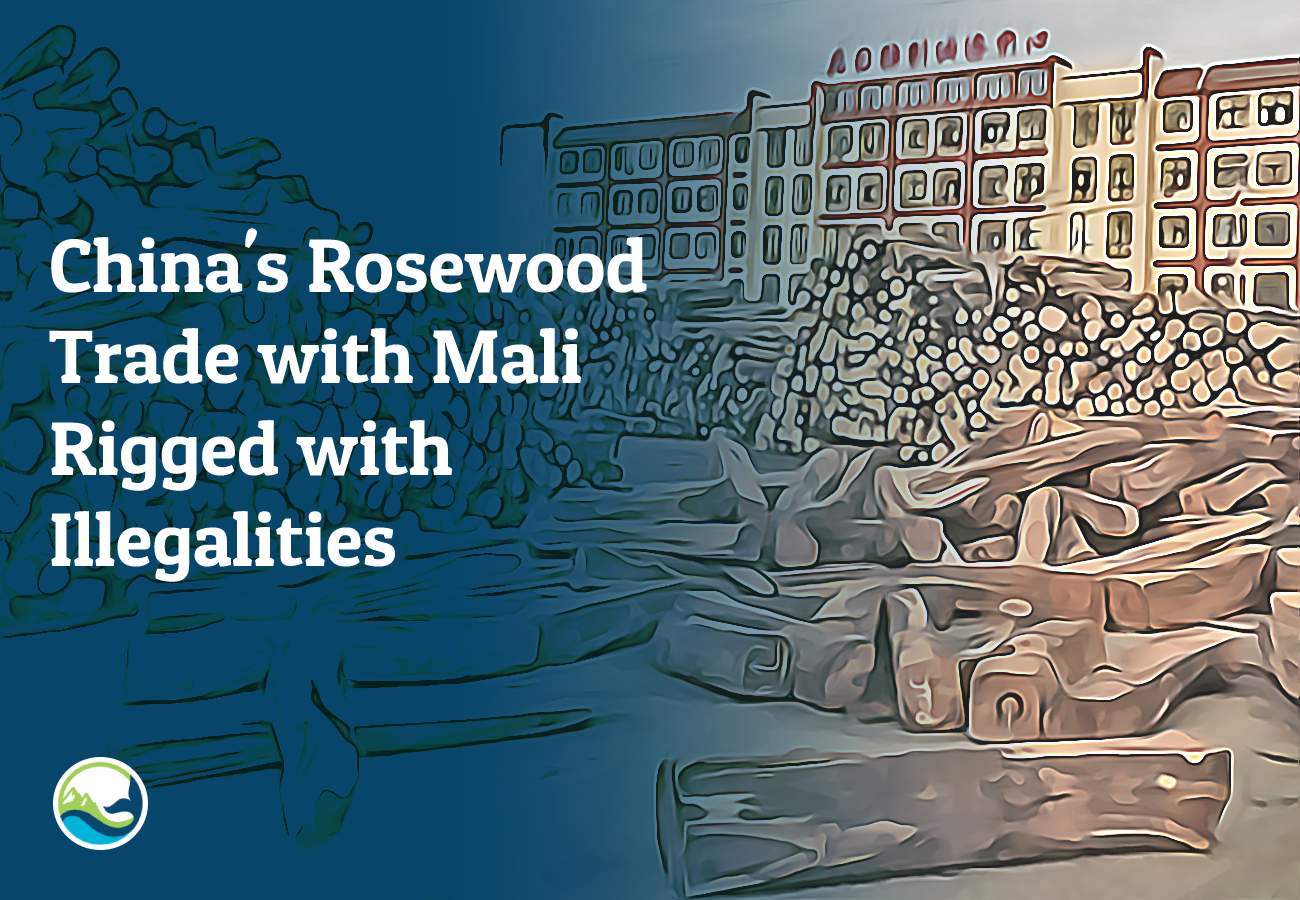
China’s Rosewood Trade With Mali Rigged With Illegalities
25 May 2022 (OCCPR)
China’s rosewood imports from Mali, one of its leading rosewood suppliers, have led to the devastation of Malian forests and served as a conduit for ivory smuggling, says a new report by the Environmental Investigation Agency (EIA).
Global trade in rosewood, a category of highly valued tropical hardwoods, has resulted in a sharp decrease in rosewood populations and fuelled deforestation around the world.
Most of the demand for rosewood comes from China, where it is used to produce Ming dynasty-style furniture, popular among the country’s new rich.
Nicknamed “ivory of the forest,” rosewood is one of the most illegally harvested woods. Earthsight, a London-based environmental NGO, estimates that the annual value of rosewood smuggling could exceed a billion dollars.
Following the depletion of rosewood forests in Southeast Asia around 2010, where the imports were traditionally sourced, trafficking networks moved to West Africa, home to by then barely touched reserves of Kosso – a rosewood species native to the region’s semi-arid forests.
With its notoriously weak law enforcement, West Africa quickly grew into China’s leading rosewood supplier. In 2020, over 70% of Chinese rosewood imports came from there.
The exploitation of Kosso in Mali, a chronically unstable West African nation facing an ongoing Islamist insurgency, started sporadically in 2012-2013 and took a firm hold in 2014-2015 when neighbouring countries started to combat the illegal trade.
Multiple measures, aiming to ensure the sustainability of the logging, have been in place all along. For example, Mali has required logging operations to be conducted in accordance with an approved management plan and exploitation permit.
However, logging companies have reportedly ignored the regulation, exploiting forests outside of the approved areas, including in protected forest reserves.
In May 2020, in an attempt to stop the illegal logging, the then-minister of environment suspended commercial exploitation of Kosso altogether.
The suspension, albeit lifted in March 2021, was effectively substituted with an amendment of the existing unprocessed timber export ban.
That said, the EIA found that logging operations continued for the entire period despite the ban. From May 2020 to March 2022, Mali supplied China with 5,500 containers of Kosso, equivalent to approximately 220,000 trees.
According to the report, this was made possible due to corruption, present at the local level, where Forestry Administration agents are often turning a blind eye to unauthorized logging, as well as in government circles in the capital of Bamako.
The EIA said that a well-placed source claimed that a designated representative of GIB, a dominant player in Mali’s Kosso supply chain, tours the key offices several times a year, distributing bundles of cash.
In addition, the investigators found that the Kosso trade has facilitated ivory trafficking between West Africa and China. Chinese traders allegedly started hiding ivory in Kosso logs in 2015.
Several tons of ivory smuggled each year include ivory from desert-adapted Gourma elephants, considered to be on the edge of annihilation.
The report also notes that local communities, whilst having their livelihoods threatened by the environmental destruction, have seen very little of the wealth generated by the industry.
“In the last three years, more than 800 billion FCFA (US$13.8 million) have been made in the exploitation of timber in our municipality,” Aliou Diallo, a community leader in the Kayes region, told the EIA. “Despite this colossal sum, we see no school, no health center for the community.”
The rosewood crisis in Mali typifies the situation in most Western African countries, which have been continuously failing to put an end to illegal logging.
This might change soon, however.
During its meeting in March, the CITES Standing Committee resorted to unprecedented measures to stop the accelerating devastation of West African forests.
Unless the countries exporting Kosso prove that the exploitation of the wood meets the sustainability criteria – evidence they are unlikely to be able to supply – they will face trade suspension.
However, even if the embargo is eventually imposed, the exports could continue unreported through smuggling or misdeclaration of logs as unprotected species.
Nevertheless, such a measure proved to be very effective in Nigeria – the first country in the region where it was applied. After its imposition in 2018, Nigeria’s Kosso exports to China, which used to service 60% of the market demand, shrank more than 30 times within a year.



